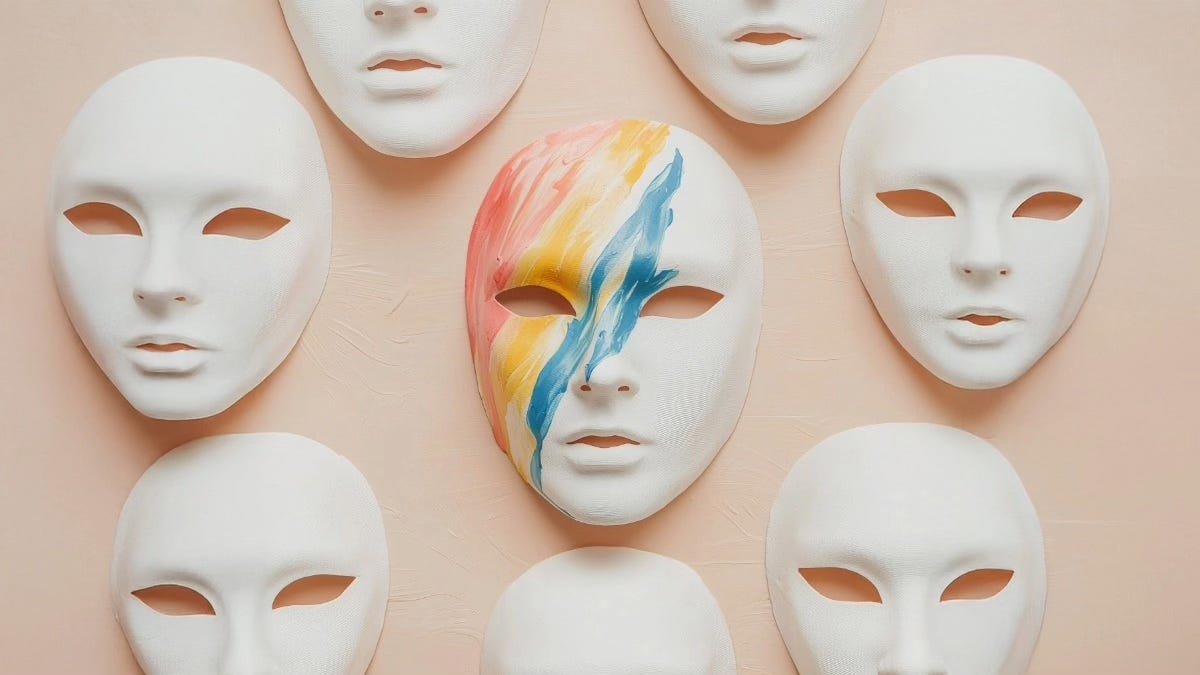Navigating Identity, Unmasking, and Inclusion at Work
As a neurodivergent professional—who is also part of the LGBTQ+ community—I’ve spent years masking at work. Often referred to as camouflaging, masking is suppressing parts of yourself, conscious or unconsciously. It’s a strategy to adapt or fit in socially to our surroundings.
My whole life I would do this instinctively, but it wasn’t until I was in more professional situations I started to notice I was hiding more parts of myself to assimilate to my surroundings. That means I adjust how I speak, behave, or express myself just to feel less anxious or to appear, in my perception of what it meant to look professional.
But masking comes with a cost:
🔸 Burnout
🔸 Disconnection
🔸 A loss of self
For those of us who discovered our queerness or neurodivergence later in life, unmasking becomes a long, layered journey—one that touches every part of how we show up, including with our colleagues.
🛠️ Unmasking and Identity Work
For me, unmasking began when I came out.
That moment of self-acceptance opened the door to recognizing I was also autistic and had ADHD. It helped me understand:
Why work environments drained me
Why my communication style was “different”
Why certain expectations just didn’t fit
But unmasking doesn’t happen all at once—and it shouldn’t have to.
One of the most important things I’ve learned (and talked about with Dr. Neff) is this:
🧷 It’s okay to unmask gradually.
You get to choose when, where, and with whom you share more of your authentic self.
Especially in professional spaces, safety, support, and psychological trust matter. You don’t have to be “out” everywhere to be real—you just need to honor your timing.
👥 How Managers and Colleagues Can Support
If you’re managing or collaborating with someone who’s neurodivergent, LGBTQ+, or both, here are a few things that help:
Respect privacy — Unmasking is personal, not performative.
Build flexibility — One-size-fits-all policies create exclusion.
Validate — You don’t need to “understand” someone’s identity to affirm their humanity.
Ask, don’t assume — Learn how someone prefers to work, communicate, and receive feedback.
Visibility is everything — having a manager who is comfortable talking about both their identity and being neurodivergent creates more safe spaces.
For me, having mentors who I could model my style after was critical for when I was masking. One part of masking is how we often imitate or model behavior we see. For me, having exceptional mentors at work allowed me to build my workplace identity as a manager and then I was able to “try-on” different styles with how I masked until I could find a way that worked for me.
This led to me being able to get more commutable to allow myself to unmask a little and then a little more (in an appropriate way at work) where I could then feel comfortable being out at work and being public in my identities to support other colleagues.
🤝 Community Is Key
Identity work is hard to do alone.
Dr. Neff and I both agree—community is essential. Whether that’s trusted coworkers, friends, online groups, or affirming spaces, it’s the people who “get it” that help us navigate the grief, joy, and rediscovery of unmasking.
💬 Final Thoughts
Being both queer and neurodivergent means navigating identity on multiple levels.
It’s not always easy. But it also opens doors—to insight, empathy, and innovation. When we make space to be ourselves, we invite others to do the same. And that matters—in our homes, our friendships, and our workplaces.
This post may be a little different from my usual workplace content, but I carry these identities into work every day.
If this resonates, I’d love to hear from you.
👇 Let’s Connect:
🔔 Subscribe for more on ADHD, autism, leadership, and identity
💌 Join my newsletter: brettwhitmarsh.substack.com
🎧 Listen to my podcast: The AuDHD Boss on Spotify
💼 Coaching for neurodivergent professionals: audhdboss.com


